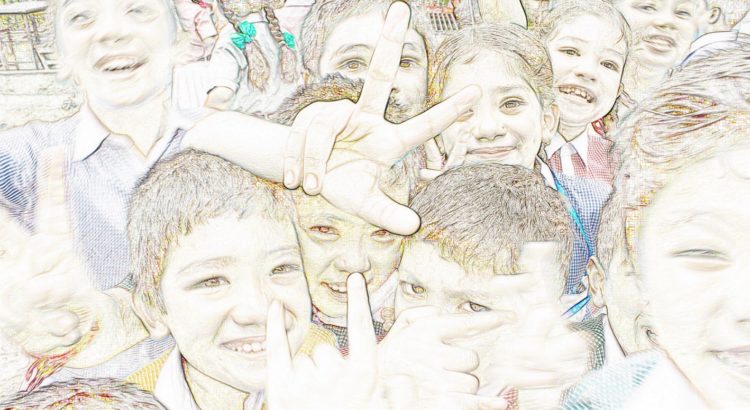The endeavor of Nation-Building towards the Araya vision requires the active engagement of all citizens, and must focus on addressing issues at their roots, instead of merely reacting to current problems that rises to the surface.
All citizens have vital roles to play in nation-building, including the children, the adults and particularly the youths upon whose shoulders rests the nation’s future trajectories. With their vivacious spirits, receptive local and global outlooks, and agile minds that are quick to learn and adapt, the youths are the torch-bearers of the future.
On the 15th-17th December2017, the National-Building Institute (NBI) collaborated with students from the Senior Executive Program for Nation-Building (second year batch) to organize the first NBI Youth Camp, which was held at Chachoengsao Scout Camp. In the presence of over 300 young participants, I discussed “why youths must engage in nation-building”. In the speech, I brought to attention a number of outstanding youths who have made world-changing impacts, namely:
Ryan Hreljac: Founder of Ryan’s Well Foundation, Ryan Hreljac has raised funds to dig wells across numerous regions and was recognized by UNICEF as the Global Youth Leader. Thus far, his foundation has succeeded in constructing more than 740 wells and 1,000 toilets in over 20 nations, all of which have managed to impact over 1 million lives.
Dylan Mahalingam: At 9 years old, Dylan Mahalingam partnered with his sister to establish Lil’MDGs, an international organization that advocates for the development and empowerment of youths. By leveraging on the power of the “internet”, the organization has managed to rally the support of over 3 million youths and 24,000 volunteers from 41 nations. The project has garnered international recognition and won the World Summit Youth Award in 2009.
Gregory R. Smith: Dubbed “boy genius who wants to change the world”, the 4-times Noble Peace nominee Gregory Smith entered university at the age of 10 before going on to establish the International Youth Advocate Foundation, an organization that works to promote principles of peace and understanding among youths around the world.
Craig Kielburger: Stirred by a news article on child labor violence, Craig Kielburger was inspired to establish Free the Children, an organization that works to protect the rights of children. Backed by substantial funding, the organization has established numerous sustainable development projects across a number of impoverished nations, including Kenya, Ecuador, India, Nicaragua, Arizona-Mexico and China. The organization has since attracted the partnership of over 650 schools and continues to expand its network worldwide.
What empowered these youths to create local, national, regional and international impacts?
Even in their youths, these individuals were already exhibiting the spirit of benevolence, with their kindness extending towards strangers and transcending national borders. Driven by compassion and global-mindedness, these youths have dedicated themselves to solving problems that align with their unique interests and abilities. I believe that the following are key factors that have empowered these individuals to achieve great feats:
Teaching and Education Systems: Education, particularly in the area of current world events, opens the door for youths to expand their world and life views, and also helps them to gain understanding and awareness of the state of the world. Such education, coupled with one’s personal interests, cultivates hunger for more knowledge. With further consolidation of the various concepts and principles, the youths eventually begin to form their own internal ideologies.
Culture and Values of Families and Societies: Familial and societal support are crucial elements that will help to encourage the youths to take action. These young individuals are at an age that requires the backing from family members and others around them, whether it is the schoolmates, neighbors, relatives or siblings. A culture that advocates for equality, compassion, philanthropy and altruism will embolden the youths to manifest their vision and to rally the support of others.
Support from Organizations and Departments: Endorsements from organizations and government sectors is another key element that will help to empower the youth, whether it takes the form of funding for social projects or awards for social-minded youths who contribute to their community, society and nation.
Vietnam serves as a good example in this area, as evident in its government’s support of the Youth Summer Volunteering Program, such as the one held in 2017 that focused on “encouraging youths to build new-style rural and civilized urban areas”. The aim of these summer programs is to encourage Vietnamese youths to contribute to national development, whether it is the economy, society, social welfare, national security, or the stability of poverty-stricken communities along the nation’s borders, islands and other rural areas.
Singapore is renowned for its ability to raise high-caliber “people” who then become powerful drivers for national development. Since young, its people are taught to uphold the nation above community and society above self. The strength of the people, in turn, consolidates to form the strength of the nation.
The Singapore Youth Award (SYA) is one of the ways that the nation empowers its youths. One of the world’s most prestigious youth awards, it is bestowed to youths who courageously work to elevate the soul and spirit of the community, while inspiring others to follow suit.
The SYA recognizes the tremendous potential of its Singaporean youths. It encourages youths to cultivate the “Can-do” and “Never say die” attitude that stands courageously against adversities, as well as the sacrificial spirit that takes action for the benefit of the collective in order to make a world a better place for all.
The youths who can make a difference are those who have cultivated the qualities of “virtue, Competency and firm stance”. The change must begin internally, starting from changing one’s own thinking in order to change one’s life, before going on to influence others who will in turn influence those around them. As more lives are changed, this creates the momentum for the transformation to expand its reach across the globe.
Source :amthaipaper
ISSUE 0128 (August – September 18)
Kriengsak Chareonwongsak
Senior Fellow at Harvard University’s Center of Business and Government.
kriengsak@kriengsak.com, http://www.kriengsak.com
